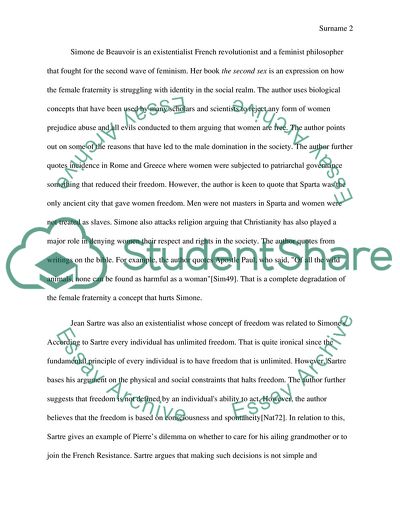Cite this document
(The Second Sex by Simone de Beauvoir Book Report/Review - 1, n.d.)
The Second Sex by Simone de Beauvoir Book Report/Review - 1. https://studentshare.org/philosophy/1852628-freedom
The Second Sex by Simone de Beauvoir Book Report/Review - 1. https://studentshare.org/philosophy/1852628-freedom
(The Second Sex by Simone De Beauvoir Book Report/Review - 1)
The Second Sex by Simone De Beauvoir Book Report/Review - 1. https://studentshare.org/philosophy/1852628-freedom.
The Second Sex by Simone De Beauvoir Book Report/Review - 1. https://studentshare.org/philosophy/1852628-freedom.
“The Second Sex by Simone De Beauvoir Book Report/Review - 1”. https://studentshare.org/philosophy/1852628-freedom.


